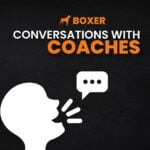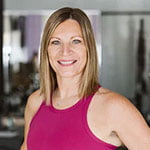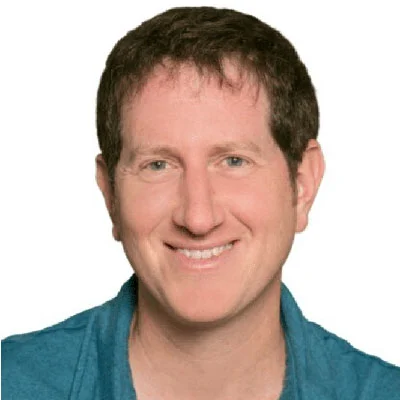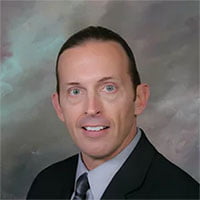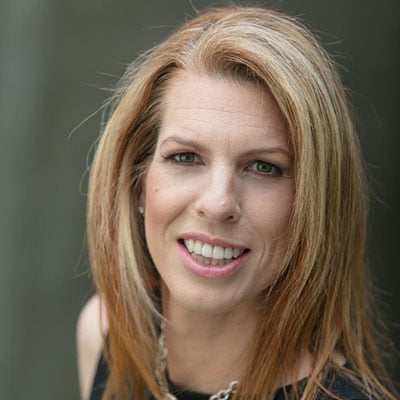Kevin Stafford 0:00
Hello and welcome to another episode of the freshly freshly renamed conversations with Coach’s podcast. Don’t worry, we’re still drinking coffee around here, the caffeine is still important to us, especially here in the morning. I am your host, Kevin. Well caffeinated as you can probably tell. And today I had the pleasure of speaking with Ty Hammond. Ty is an executive team and leadership coach, the founder of one mountain leadership, and creator of the true leadership approach. He works with people who are committed to their growth as both a leader and as a human being, to learn how to consistently transform what holds them back into the confidence, capacity and presence of true leadership. We’re gonna talk more about that we’re gonna talk more about tie, we’re talking more about everything. And we’re gonna do it all in 15 ish minutes, if I’m good.
Ty Hammond 0:45
Thanks so much for having me, Kevin.
Kevin Stafford 0:49
All right, let’s get back to your your beginning what I want to cheekily like to refer to as the superhero origin story of you as a coach, how did you? How did you maybe discover or realize that you were a coach in practice, if not a name? And then how did you go from that realization, to starting a coaching business and what you’re doing today?
Ty Hammond 1:09
Great. Yeah, thank you. Well, it’s interesting, because I think well, first of all, I’ll say that I am an individual executive coach doing one on one work, but I sort of started that later in my career. So my career started 10 years prior, before I really started even doing one on one individual coaching work, was starting to work with groups and with teams, right. So my first passion was really this, you know, this generative collective wisdom and magic that occurs in relationships with groups. So that’s really where I cut my teeth, so to speak professionally, right, and I’ve got a master’s degree in social work. And I worked with the Ford Foundation and did lots of consulting that way. And I was always have always super been drawn to relationships, right, the power of relationships, how we relate. Now, without going too far into it, I’ll just say that I’ve had several, I had several very important things happen along my professional journey, where I learned very distinctly that what matters less is what you do, and what matters so much more is how you do it, right. So the relationships, how people are actually working together. So I actually saw several and was able to perceive and sort of witness several very high stakes. And, and, you know, high risk and high potential projects just completely fail because of the inability of people to really work together. So that’s what sort of brought me to the group coaching side, on the personal side, the one on one coaching, there’s a reason why I waited so long. And I will say that sort of brings me back to the sort of origin story is that, you know, the work that I do individually with people is, it’s deep. You know, and I think a lot of coaches will offer that, that, you know, the work that I like to say, there’s really no distinction between personal and professional development. And, you know, the approach that I’ve I’ve worked with here, or developed here called the true leadership approach, I like to almost make this distinction, there’s like therapy, which is sort of like looking back towards the past, there’s coaching almost, which sort of like looks up towards the future and where you want to go. And it’s true leadership approach is really about learning how to be in the present moment, with whatever is happening. And what I’ve discovered in my own work through my work with the teacher is that the more that I’m able to do that, the more that my own capacity, confidence and presence really increases as well, which I believe is absolutely fundamental to leadership in general. So, you know, just a little bit more specifically, my journey started with as many people’s does write my own, my own path of challenge and hardship, you know, I lost my mother when I was four years old, I had a very unique, you know, way of being raised and I had a, an entire, you know, up to 21st 25 years of my life completely, you know, plagued I would say, by shame and self doubt, and self judgment and things that made it really really hard to be in the world. And so, you know, I had a deep prayer for my life and I fortunately ended up finding a teacher and took me some years but I ended up actually eventually listening to her and and through about like 12 years working with her and you know, consistently being engaged in the leadership conversation and so interested in just consciousness and adult human development and how we grow over the years this this way of being essentially just, you know, in this this work In the world, just happened. And I would say I would, I would say there was a choice point moment in which my fiance said to me, you know, when I was thinking about finally doing the one on one coaching work, which I had been, you know, reticent to do until I really felt ready. And she just said, you know, sweetie, it’s the conversations that you’re having anyways, are the conversations that you always want to have? He’s wise, just, just just continue having them, you know. So I would say, I’d say that’s the, the origin story smooshed down into, I don’t know how long that was
Kevin Stafford 5:40
A condensed 120 seconds or so. That’s lovely. And that’s I love that, that’s just, that is the chef’s kiss of advice. It’s like, you feel like, I feel maybe like, we’re similar type of person, you feel like you’re waiting for the conditions to be correct. And for you to be ready, like out of respect for what you’re endeavoring to do. You want to be careful because you care. But then sometimes there’s a at least with with me, I might be I might be projecting a little bit, but to wait too long to be to get stuck in that cycle of preparing and waiting and being careful. But then letting myself fall into a stasis, a sort of sort of holding pattern. And that piece of advice is That is perfection, you’re already doing it, this thing that you’re waiting for, is already happening, all you have to do is catch up. Yeah, let your brain catch up.
Ty Hammond 6:37
Yeah, it’s interesting, because I would say, I hold that the the piece that you’re mentioning about, you know, certainly the, you know, the all of the whatever comes up that self doubt the, you know, the vulnerability of putting yourself into the world. And those reasons for holding back. And I also want to say, and this is a big part of the journey, which I wasn’t able to get to a little bit is that, you know, there was a particular point in my path, in which I really thought that I had all the answers. And so, through that, when you I would I would say just sort of part of my construct or personality. I mean, I was teaching people, but I wasn’t really present, it was from really this manifested, created part of my personality that I had created. And that ended up creating a lot of issues or challenges and was required a lot of deep humbling, I would say, by the universe. To recognize the extent of this is part of the work that I offered to recognize my own self deception, the extent of my own self deception. And so part of my you know, waiting to engage in that one on one work was really ensuring that I had, if I’m going to create something called the true leadership approach, by the way, this is about really accessing what is true, what is actually true in me, you know, to what extent can I access that and then live from that. And, you know, to me, that’s no small thing. And there’s no way that I could actually be doing that, right from a place of my own self deception, which I had, had already come across before. So just really holding the responsibility of that. You know, given that there’s lots of different kinds of work out there, lots of different people that want it. So it was just, I would just say, you know, really holding back until I really felt truly, at least ready enough where I could trust enough that I wasn’t going to do harm. Let’s put it that way.
Kevin Stafford 8:47
Yeah, it’s not it reminds me that it’s not unlike being a parent where you want to be as ready as you can be with the understanding that you can never be ready, like, ready, ready. But it’s like that work that you do as you’re in the lead up to becoming a parent is so it’s so important. And it’s i i appreciate so much the parents that soon to be parents that take it so seriously, I have a good friend of mine right now who just had his first child. And they were both so they were so invested in engaged in being great parents, partially maybe because they’re they have they’re having children a little bit later in life, as opposed to like, you know, early 20s, where if I tried to imagine myself having a child when I was like, 22, and I can’t or I can’t and don’t want to but yeah, that that commitment to doing everything that you possibly can to be ready, along with the understanding that you’ll never be ready.
Ty Hammond 9:42
Yeah, yeah. I mean, I think that’s maybe the distinction there is like, I want it to be I want it to be ready enough where it can be confident that I wasn’t going to do harm. not confident enough that I wasn’t going to make mistakes, because I’m still not there. And I hope actually that I never get to a place where I’m so confident that I think I’m not Gonna make mistakes, because then I’ve just totally lost the plot.
Kevin Stafford 10:02
Yep, that’s a red flag. Oh, you said something earlier, like towards the beginning of our discussion about the distinction about what the way that therapy will often be looking to the past and coaching a little bit to the future that reminded me of something that a, another coach said to me a paradigm that I really, really appreciate, which I’ll use to segue into my next question. They like to think of therapy more like archaeology, and coaching more like architecture. And I really liked that, because there’s a great deal of unearthing, when it comes to therapy, sort of like, you know, you’re there with the, with the backhoe. But also like the delicate broom, you know, you’re digging deep, you’re finding things that are old and delicate, and kind of processing them and understanding the past better. And then with coaching, a lot of times you and I like archaeology as an analogy for that, because there’s, there’s a lot of blueprint to it, there’s framework, there’s, you know, what we’ve learned how to build these kinds of structures, let’s do it together, here’s the plan we’re going to work off of, and then you’re also kind of like a general contractor, maybe where you’re like, you know, working together to build this home, or this building, or this office or this, whatever. So all that said, Who do you coach these days? And how do you coach them? What’s your what’s your what’s your role as the architect in, in people’s in people’s lives? Business? professional, personal, obviously, they’re kind of, you know, underneath at the root, they’re all the same? But yeah, who do you coach and how you coach them these days? In your business? Obviously, you have the true leadership framework. But yes, talk a little bit more about that.
Ty Hammond 11:32
Great, if it’s okay, I just want to talk really quickly about that. I love that archaeology architect thing. Yeah. And you’re right. So I would say there’s a lot in you know, I’m sure that you a lot of people talking about, for example, like the the word mindset, right? Yes. And in mindset being like a framework through which we see and understand and experience the world. And then there’s the these frames from the past. And then there’s this potential to actually create frames of how we see the world in the future. And you can actually architect right, your future. And I w ould say, my work is distinctly different from that. This is not about architecting. Anything, this is actually about identifying what those frames are seeing them and disassembling them.
Kevin Stafford 12:13
Okay, talk more about that. Yeah.
Ty Hammond 12:15
So if mind, mind set is a way that you see the world, the work of true leadership isn’t about seeing the world through any particular frame, it’s actually about experiencing what is happening in the present moment. And, you know, from my experience, what can happen, the deeper that we are able to be seated in the present moment, then our experience will inform a mindset that need not be created, in order for us to see something in a different way. So you know, I like to say that seeing something differently, will help it and it will like you can create mindsets, that will change your experience. I don’t call them transformational. I call those re formational. You’re reforming reframing, the way that you see the world a transformation is is dissolving a disassembling of those constructs so that you actually are able to experience without that frame. Now from that deeper, direct experience can arise from your experience, not from a concept of some coach, or somebody that you heard on YouTube, or some book that you read that you think this is the mindset that I should have. And so I’m going to work on creating it. So I can see the world through that way. It actually a mindset arises from the direct lived experiences that you’ve had. So your mindset comes from an informs. Right, are your your experience informs your mindset rather than your mindset in forming your experience? So it’s an important distinction, I would tell ya,
Kevin Stafford 14:06
I, I love that, that that? Yes, that is that is very well conceived, and also very well explained. Yeah.
Ty Hammond 14:14
I appreciate that feedback, as I’ve been, you know, like, I’m curious as to how this lands, sometimes I’m up and I’m like, this is really, you know, so I appreciate that.
Kevin Stafford 14:23
No, I simultaneously have like, a dozen different, different offshoots to talk more about that concept you just described, and I and I
Ty Hammond 14:32
can come to your question. I can, I can, I can. So I just wanted to make that distinction because it sort of sets up who I’m who I’m really working with. And I would say, you know, I work with executives C level, for sure. And, you know, VP and, you know, directors and managers, really my focus is really working with people that are leading teams, and that is because I also have this deep passion of working with groups as well. And I see leaders that work with teams as a leverage point in organizations. So I deeply believe in the concept of leverage and systems, which is, you know, one place where if you can get to the core and make one small change that can make a big change in everything. So I’d say that people that are leaders of teams are at or a leverage point in organizations for transformational change. So that’s the sort of positional piece that the other pieces is I would say, in my work is not really it’s not necessarily for everyone, it is for people that are truly committed to doing the deep inner work of, you know, being willing to look at what they have been unwilling to see. Right. It’s like an uncovering, and being well, it takes courage to do this sort of stuff. It’s not just about learning to see the world in a new way, it’s about being able to confront the way that you are looking at the world in ways that are holding you back. Right, is terrifying. Which can be terrifying. I like to say it’s hard until it’s not, you know, so with practice, things can get easier. Yeah. But willing to do this deep inner work. So generally, the folks that I’m working with are called to, you know, to and really, really already see that inextricable link between personal and professional development. The way that I’m offering my services, right now I have, you know, one on one coaching for certain, and I actually have just launched my true leadership foundations mastermind. So I have been developing the true leadership approach over the past five years, with individual clients, it’s been really working incredibly, and I am so so incredibly excited to be bringing this to a group format. Because it’s really, you know, this incredibly generative space, where we’re, you know, people get to learn and engage in this stuff, as a community and really have that support that mutual learning. And so what the way that that looks like is, you know, individual modules that people lead them through, lead themselves through at their own pace. And then there’s a weekly, you know, two to three hour call, where everybody sort of can call in at their leisure for support.
Kevin Stafford 17:12
I love that it’s, it’s such a good, it’s such a good hybrid. Now, hybrid, it’s such a good evolution of taking the magic and the and the deep work of the one on one experience, and growing it to be something a little bit so that because obviously, the one, the one that one I mean, you know, there’s when you when you’re in that in that moment, where it’s just you and somebody else, and you’re talking and you’re sharing, and you’re doing the deep work, and you see the light bulb go off. Yeah, and it just, it’s, there’s nothing like it, there’s just nothing like it. But there’s only there’s only 24 hours in the day. And there’s only so much if you could go around. And so you want to like and your your quest, and this is this is true of many coaches, and I can tell it’s true of you, you want to help as many people as you can, you really want to do that. But without compromising the deep work the value that you know, is necessary.
Ty Hammond 17:58
Yeah, precisely. And I actually feel it’s within this, you know, it’s within this group model that I’m so I’m so excited about, it’s been amazing. I’ve got, you know, my first, you know, I’ve got it’s an open enrollment, so people can sort of be in at any time. It’s not like a cohort model. So folks can come in today, but I’ve got my first, you know, group of people moving through the through this, and I, myself have learned this way as well. And the learning just deepens so much. And I think that there is, you know, there’s this deep yearning for connection and for community and for feeling for knowing that we’re not alone. You know, that, that, that the experience that I’m having, that I’m struggling with, and may be different in content, but it’s really the same stuff at the end, and that even in and of itself, even if all we were doing in our calls wasn’t even based on a framework that I have been putting together based on what I’ve been learning for the past 15 years, or whatever it is, even if we just got together. And we just said, here’s what’s happening for me, and everybody was able to just say that there would be such immense benefit from just that.
Kevin Stafford 19:05
And I love I love the way you you almost like not edited yourself but you said feeling first and then you went to knowing and just in like in just a snapshot just didn’t like 10 and a second and a half. I feel like that encapsulates so much about what the the end result of such a such a group coaching experience is like you go, you get the feeling you begin to feel let yourself feel that you are not alone. But that very quickly becomes annoying.
Ty Hammond 19:31
Yeah, I love there’s Yeah, I didn’t mean to cut you off. So I was just
Kevin Stafford 19:35
gonna say that certainty is, is the foundational it’s the foundation. It’s a springboard for that certainty. You can plant your feet and you can make your moves in the way and live your life in the way that you want. I just I I love it. And I find that it’s every time it’s discovered every time it’s experienced. It’s magical, whether it’s me whether it’s someone close to me, whether it’s someone whether it’s a complete stranger, like it’s just something about experiencing it and seeing it happen is just wonderful going
Ty Hammond 19:59
on Yeah, no, thank you so much. And yeah, I just I’m brought back there’s a teaching from the Kogi people, which is to feel is to know, which I love the D conceptualization of knowing and that knowing and true knowing in the way that I talk about the word knowing in the true leadership approach isn’t a conceptualization. And it’s not, you know, having a feeling of like, Oh, I know this. And now I’m going to collapse it into certainty that I take outside of this present moment, the knowing is actually requiring of me to feel it in each and every single moment. So I like to say that that certainty is the death of clarity, clarity is a knowing
Kevin Stafford 20:45
dropping bombs that beautiful turns of phrase that encapsulate so much in such it’s, you know, I’m so like, I could I could do this with you for hours, I could feel it. But I need to pull myself back. And just Well, first of all, I’m going to thank you. I’ll probably thank you again later, I think. Thank you already. I’ll thank you probably numerous other times, I’ll probably send you a thank you message later on. Thank you for sharing these messages. Thank you for sharing yourself. Thank you for the work that you do. Please tell me and everyone who’s listening where they can find out more about you where they can connect with you where they can chat with you where they can get to know with you and get more of this.
Ty Hammond 21:22
Great. Yeah, thank you so much. Well, I’m primarily working through LinkedIn right now as the primary social media outlet. And and we didn’t get to the challenges part, it just really quickly that I’m brand new, I’m sort of new on LinkedIn and wanting to bring my message out into the world. And so anybody that would, you know, reach out, connect with me there, I’d love to start a conversation, you know, have a real connection. I’m just sort of learning the ropes there. It’s really exciting. You can also visit my website, one mountain leadership.com.
Kevin Stafford 21:54
Awesome. Yeah. It’s like, the great challenge of this podcast is that it’s designed to be short. And we’ve already been talking for like for over a half an hour. Oh, wow. Really?
Ty Hammond 22:05
Oh, yes.
Kevin Stafford 22:08
That is one of the most delightful challenges is like I’m looking at the clock and I’m realizing that I’m being a bad podcast host, but I’m enjoying myself too much. And I feel like you were to this has been a great, great, great conversation. We’re just gonna have to do a part two is all good.
Ty Hammond 22:23
It sounds wonderful. Kevin, I’ve absolutely very much enjoyed chatting with you this morning as well. Thank you so much for having me.
Kevin Stafford 22:30
And to everyone within earshot of this podcast. Find Ty learn more. If you get a chance to chat with him, DM him on LinkedIn connect LinkedIn is a great place to build and grow these kinds of relationships. Chefs kiss we will talk to you again very soon.


